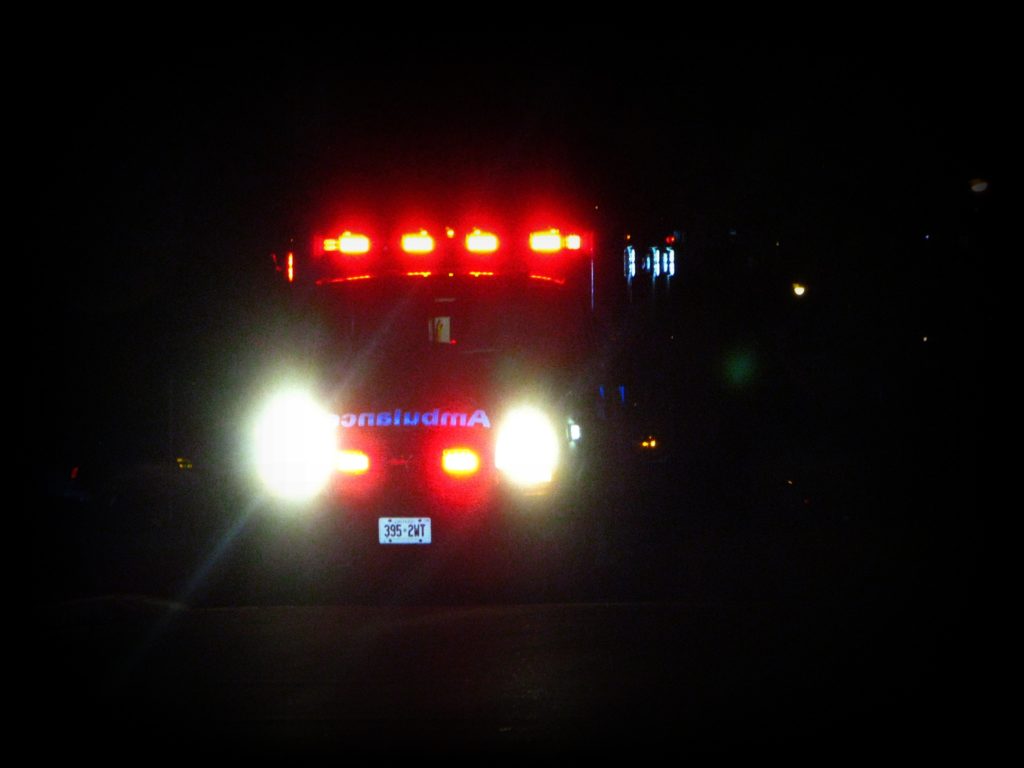A shortage of public ambulance services is affecting the well-being of residents across Makana Municipality, particularly in outlying areas. Kathryn Cleary reports
Lene Davis was at work on the morning of 23 August when she received a phone call from her father in Hooggenoeg, Grahamstown (Makhanda). He said her uncle had passed away in their family home. Davis’s uncle was reportedly suffering from throat cancer, but was a pensioner with no medical aid for specialised services.
Davis rushed home to find her family waiting for EMS and the police to come certify and remove the body. She said her family had called EMS and police at 10am. “They said we must wait for two minutes for the ambulance,” said Davis.
After waiting for more than an hour, Davis’s cousin phoned Makana PR Councillor Cary Clark.
“After calling metro and police and nothing being done, in desperation the family called me and I called metro, then went up to Hooggenoeg,” said Clark. “The metro ambulance had still not arrived so I called Gardmed and they responded with police in a matter of about 10 to 15 minutes.”
Gardmed and police attended to the matter by 2.30 that afternoon.
Gardmed was approached for comment but did not respond at the time of publication. If a response is later received it will be reflected in the online version of this article.
“The incident in Hooggenoeg led to a family waiting for more than five hours for the ambulance and police to certify the death of a loved one, which meant the undertaker could not come, which was quite traumatic,” said Clark.
Davis said other community members had faced similar experiences. “The service is very poor,” she said.
“The community is [in pain]because what they [are]seeing now is not nice. The body can’t lie [for]so long in a house. It’s not nice. It’s very painful.”
“The government must give us ambulance[s]because we don’t have money for private [services].”
Davis said without medical aid the family did not know how they were going to pay for the private services out of pocket. “I don’t want to do that,” said Davis. “Because the government gives us an ambulance to take [them]to the hospital and day clinic.”
“They must have that help there for the people and for the patients [who are]getting sick. If you phone, the ambulance must be there. If someone is hurt the police must be there.”
Department of Health Spokesperson Lwandile Sicwetsha was approached for comment on the Hooggenoeg incident and said, “The district has reported that they did not receive this call.” He asked for more information to investigate.
Grocott’s Mail responded with follow-up questions and information but had not received a response by the requested time before publication.
Davis’s family are not the only ones who battled with EMS services.
On 27 August, Makana PR Councillor Theo Bruintjies issued a press release “Ambulance shortage leads to death of young Makana woman and her unborn child”. The release states, “The continued shortage of ambulances in Alicedale has now led to the death of a young woman and her unborn child.”
The woman went into labour in Alicedale early morning 21 August and phoned for an ambulance from 4.30am, Bruintjies said.
The ambulance had only arrived at 7.30am and the woman had reached Settlers Hospital at 9am, Bruintjies said.
“She lost her baby and had to undergo an emergency hysterectomy. She passed away yesterday, 26 August, in the Livingstone Hospital in Port Elizabeth,” stated the release.
Spokesperson Sicwetsha’s response to the incident was as follows: “EMS responded to the call and patient was picked up and transported to Hospital. Call received at 05:40. Ambulance Arrived at 06:42. Patient was handed over to the nursing staff at Settlers hospital. The same patient was further referred and transferred to Dora Ngiza Hospital (21st August). Patient demised in Hospital on the 26th August 2018.”
Grocott’s Mail posed follow-up questions, but had not received a response by the requested time before publication.
Councillor Bruintjies was approached for further comment.
“The shortage of ambulances in Makhanda is a daily struggle [in]outer areas such as Alicedale, Riebeeck East, Seven Fountains and Fort Brown,” he told Grocott’s Mail. “More often than not, people from these areas are forced to transport their loved ones due to lack of services. We just don’t have enough ambulances, this crisis impact[s]on our lives and well being.
“Had we had emergency services in Alicedale, I’m convinced the fatal consequences of that morning could have been avoided. “
He said this was not the first incident of this kind in Alicedale.
“How many more lives must we lose before this uncaring ANC government can act?” said Bruintjies.
Bruintjies’s press release reported that at times only one ambulance was available in Alicedale, while Clark stated that there were two ambulances to service Grahamstown (Makhanda), Riebeek East and Alicedale. The Department of Health was asked for the exact number of ambulances but did not provide a response at the time of publication.
With EMS services and health care an ongoing concern for residents across the province, Grocott’s Mail will continue to investigate and report.


